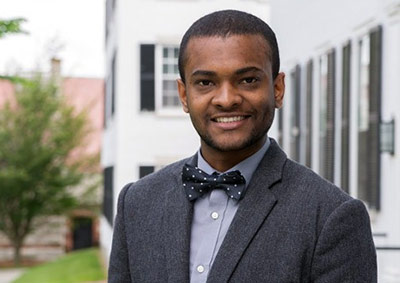MAN DROPS JAMAICAN GAY RIGHTS SUIT AFTER THREATS

Javed Jaghai
A man who took Jamaica’s anti-gay law to court has dropped his ground-breaking legal action because he fears for his safety and that of his family.
Javed Jaghai argued in his lawsuit, filed in February last year, that Jamaica’s 1864 ‘buggery’ law banning sex between men fuels homophobia and violates human rights, including the right to privacy.
Jaghai attributed his decision to drop the suit to personal threats, the burden that the litigation was putting on his family, and incidents of violence against Jamaica’s LGBT community.
“While I have never been harmed physically, I have been threatened enough times to know that I am vulnerable,” Jaghai said in an affidavit. “Though the cause and the case are noble, I am no longer willing to gamble with my life or the lives of my parents and siblings.”
He accused supporters of the anti-gay law of believing in “a fantasy borne of ignorance, fear and misguided convictions” and explained that he now wants a chance to enjoy his life instead of dedicating more “time, energy and intelligence to grappling with anyone’s illusions.”
Janet Burak of AIDS-Free World, which supported Jaghai in his case from the beginning, said that, “The fear that drove Javed to withdraw from the case is the same fear that keeps gay men in Jamaica underground, away from effective HIV testing, prevention, treatment, care, and support interventions.”
Jamaican gay rights group J-FLAG, which had brought the claim alongside Jaghai, said it understood his situation and that it fully supported his decision.
“A law criminalising what two consenting adults do in the privacy of their own home has no place in a free society that values and protects all its citizens,” said Dane Lewis, Executive Director of J-FLAG.
“The existence of this law and the closely related cultural hostility experienced by LGBT Jamaicans should be carefully considered in light of the reasons for Javed requesting that the case be discontinued. This is a live example of the ways in which the continued existence and enforcement of the anti-buggery law contributes to the lack of access to justice for sexual and gender minorities in Jamaica,” said Lewis.
In 2013, Jamaica’s LGBT community was rocked a number of violent attacks. In one of the most shocking, 17-year-old Dwayne Jones was attacked by revelers at a party after they “discovered” that she was not biologically female. She was stabbed, shot and chopped to death by the mob.
According to Section 76 of the Jamaican Offences Against the Person Act of 1864, a maximum sentence of 10 years can be issued for committing the crime of “buggery”.
In 2011, before she took office, Prime Minister Portia Simpson-Miller said that she opposed discrimination against LGBT people and indicated a willingness to review the country’s criminalisation of homosexuality, but has since taken no action.
Leave a Reply